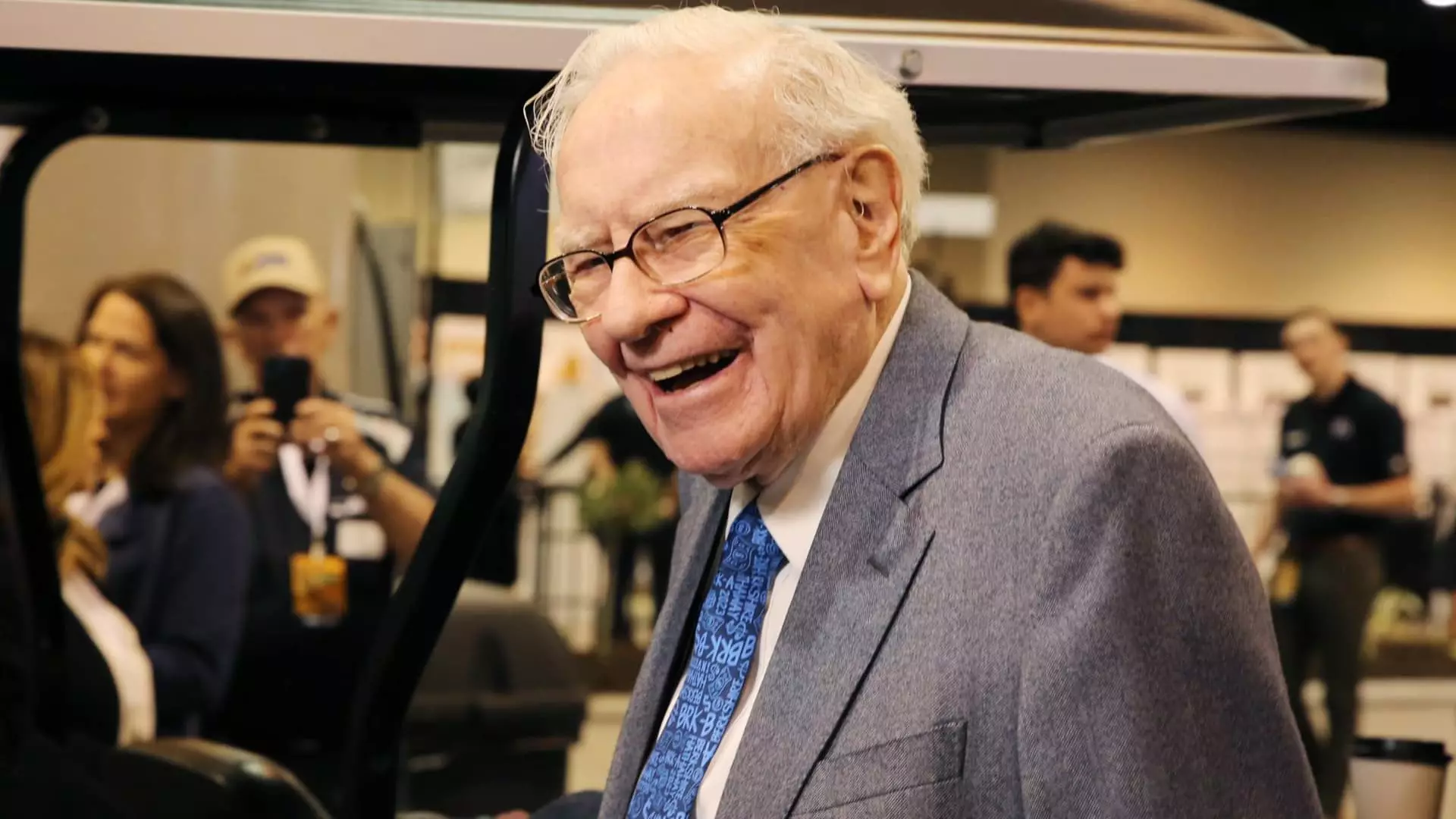Warren Buffett’s Berkshire Hathaway recently achieved a remarkable feat, reaching a $1 trillion market capitalization. This makes it the first non-technology company in the U.S. to hit this significant milestone. The company’s shares have surged over 28% in 2024, outpacing the S&P 500’s 18% gain. Just two days before his 94th birthday, the ‘Oracle of Omaha’ witnessed Berkshire’s shares climb 1.2% to a high of $699,440.93, pushing it past the $1 trillion mark. While Apple, Nvidia, Microsoft, Alphabet, Amazon, and Meta have achieved this status, Berkshire stands out for its emphasis on old-economy sectors such as BNSF Railway, Geico Insurance, and Dairy Queen, despite its substantial Apple holdings driving recent gains.
Warren Buffett’s journey with Berkshire dates back to the 1960s when he took over a struggling textile enterprise and transformed it into a diversified powerhouse encompassing insurance, railroad, retail, and energy sectors. Notoriously cautious, Buffett has been trimming his stock holdings, halving his Apple stake, and bolstering Berkshire’s cash reserves to a record $277 billion by June’s end. While he eschews market timing, these recent maneuvers have raised eyebrows among Wall Street disciples, hinting at his concerns over the economic landscape and market valuations. Berkshire’s vast cash holdings, primarily in short-term Treasury bills surpass those owned by the U.S. Federal Reserve, signaling the conglomerate’s stance on market volatility.
The surge in Berkshire’s market cap raises questions about investor sentiment. Is it a vote of confidence in the American economy and Buffett’s diverse portfolio thriving amidst market fluctuations? Or is Berkshire viewed as a safe haven asset generating steady returns in turbulent times? Berkshire recently divested a substantial portion of Bank of America shares, shedding over $5 billion worth of the bank’s stock. Following an impressive second-quarter earnings report, UBS analyst Brian Meredith revised his 2024 and 2025 earnings forecasts upward, citing increased investment income and robust underwriting results in the insurance segment. With insurance stocks surging post-pandemic, Meredith predicts Berkshire’s market value could soar well above $1 trillion, setting a 12-month price target of $759,000 for its A shares.
Berkshire’s pristine Class A shares command one of Wall Street’s highest price tags, selling at a premium of 68% over the median U.S. home price. Buffett’s decision not to split the stock stems from his belief that a lofty share price attracts devoted, quality-driven investors for the long haul. He views many Berkshire shareholders as using their holdings akin to a savings account. Nonetheless, recognizing the demand from smaller investors, Berkshire issued Class B shares in 1996, priced at a fraction of a Class A share to provide wider access to Buffett’s investment prowess.
Berkshire Hathaway’s milestone achievement of reaching a $1 trillion market capitalization underscores Warren Buffett’s enduring legacy as an astute investor and business leader. As the conglomerate navigates shifting market dynamics and economic uncertainties, its strategic maneuvers and diversified portfolio position it as a bellwether for investor sentiment and market resilience. The trillion-dollar crown symbolizes not just a financial milestone but a testament to perseverance, foresight, and strategic acumen that have defined Berkshire’s journey under Buffett’s stewardship.

